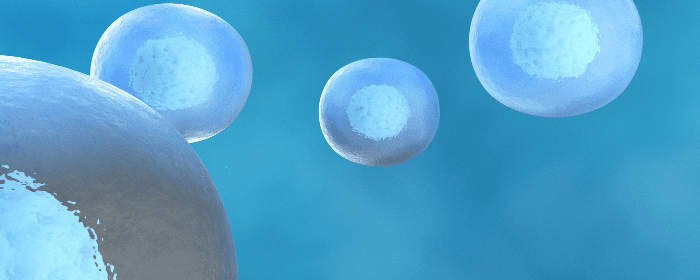
Utilizing Mesenchymal Stem Cells as an Innovative Therapeutic Strategy for Diabetes and Pancreatic Disorders
According to the World Health Organization, an estimated 422 million people worldwide have diabetes. Numerous studies have demonstrated that people with diabetes are at an increased risk of developing both acute and chronic pancreatitis, which increases the risk of developing pancreatic cancer.
Considering the lack of effective therapeutic options for pancreatitis and the limited treatment options for diabetes, researchers have recently turned to the potential of using mesenchymal stem cells (MSCs) as alternative therapeutic treatment options for these conditions.
In this review, Scuteri and Monfrini evaluate the different uses of MSCs for both the treatment of diabetes and the reduction of diabetes-related disease development.
According to the authors, MSCs offer several advantages, including the ability to be isolated from different tissues in a simple way, the ability to be easily harvested and expanded in vitro, and the absence of ethical problems associated with harvesting and use.
In addition, MSCs demonstrate the ability to differentiate, release soluble factors, and migrate toward lesions and sites of inflammation. Considering that inflammation and apoptosis are significant etiopathological factors of diabetes and pancreatitis, Scuteri and Monfrini indicate that MSCs are excellent candidates for regenerative medicine purposes.
In the case of MSCs and diabetes, research has demonstrated that differentiation of MSCs into insulin-releasing cells has been demonstrated in vitro after direct contact with pancreatic islets; the release of anti-inflammatory and antioxidant factors has improved the engraftment and prolonged the survival of transplanted pancreatic islets; and inhibited the apoptotic pathways triggered by endoplasmic reticulum stress in transplanted pancreatic islets. In analyzing this research, the authors conclude that the potential exists for the safe and effective use of MSCs for treatment of diabetes.
Although there has been growing interest in exploring the potential of MSCs on pancreatitis, there have only been a few studies exploring this therapeutic option. In these studies, the presence of MSCs was observed to reduce fibrosis and parenchymal damage by reducing proinflammatory factor expression.
In regard to MSCs and pancreatic cancer, since diabetes and pancreatitis are risk factors for the development of pancreatic cancer and considering MSCs have been found to hold potential as a therapeutic option for these diseases, using MSCs to interrupt the flow of factors leading to the development of pancreatic cancer should lower the incidence of diabetes-related pancreatic cancers.
The authors conclude that MSCs are a very promising therapeutic option for the treatment of diabetes, pancreatitis, and pancreatic cancer.
Source: “Progress in exosomes and their potential use in ocular diseases.” 18 Sep. 2020, https://www.ncbi.nlm.nih.gov/pmc/articles/PMC7459212/.


 St. Petersburg, Florida
St. Petersburg, Florida
